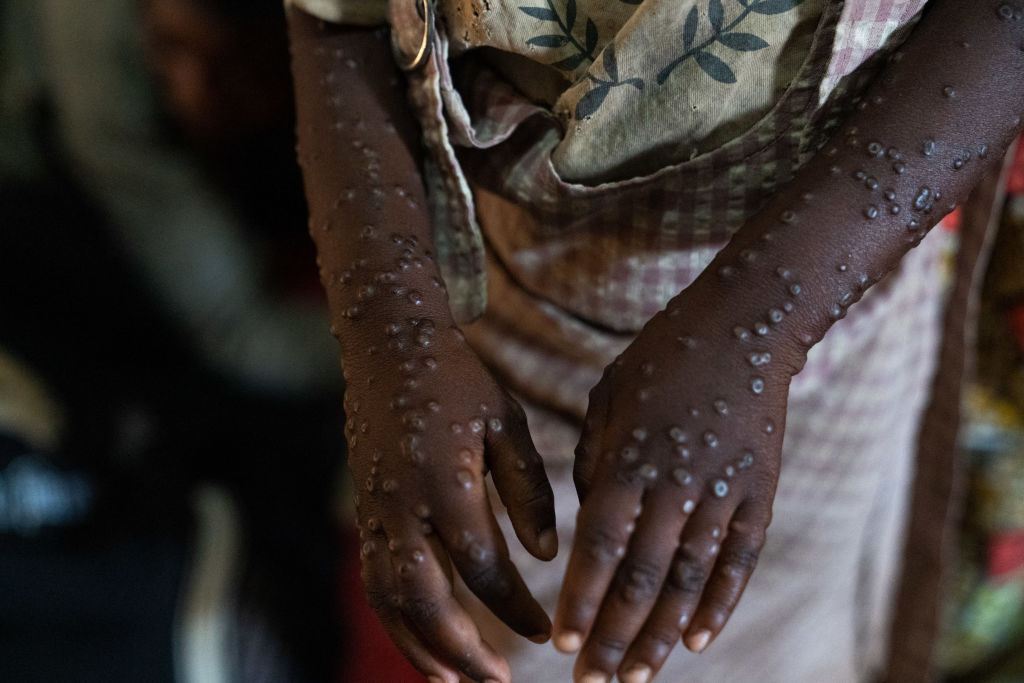For decades, Russia has used vast, shadowy networks to prey on fears about pandemics and diseases like mpox, Marburg, Ebola and malaria. The goal is to undermine public trust in health care and fan the flames of instability, racism and division.
Africa, with its young population and rapidly growing use of social media, presents an inviting target for Russian-spun campaigns of false information and propaganda. To this end, the Kremlin launched the African Initiative, an online news outlet with strong ties to the Wagner mercenary group.
“There are indications that the African Initiative is probing public health as something amenable to this kind of information warfare,” Mark Duerksen, a researcher at the Africa Center for Strategic Studies, told ADF. “They seem to have found another soft spot that they’re going to exploit. It’s really cynical because it’s going to make public health efforts more difficult on the continent. It’s going to make fewer people access care.”
Duerksen, whose work includes analysis of the growing impact of information warfare on the continent, said Russia has learned the value of disguising its campaigns by using prominent Africans to amplify their messages and give them an illusion of authenticity.
Mpox, an infectious disease with outbreaks in several Central African countries, has hit the Democratic Republic of the Congo the hardest with the largest proportion of cases and deaths. Speaking to hundreds of thousands of followers across multiple social media platforms, Togolese influencer Egountchi Behanzin has claimed that mpox was created in European military laboratories to sterilize Congolese communities and drive profits for pharmaceutical companies.
Behanzin, who is well known for his pro-Russian sentiments, has spread similar false claims about anti-malaria vaccines. In 2023, Africa Confidential newsletter received leaked documents from a former Wagner Group operative which identified Behanzin as one of several West African bloggers and influencers who allegedly were paid by Russian entities.
The newsletter reported that Behanzin was a Paris-based activist, formerly known as Sylvain Afoua, who created an organization called Ligue de défense Noire Africaine, or Black African Defense League. The league was banned by French authorities for violent disturbances to public order in 2021.
“Egountchi Behanzin has used his platform to make similar claims about malaria vaccines in Burkina Faso,” Duerksen told Voice of America. “His claims have been amplified by pro-Russian influencers and the African Initiative, a Russian-sponsored disinformation outlook. His claims should be evaluated within this context.”
Campaigns targeting health care programs undermine confidence in governmental institutions and spread anxiety that Russia can exploit, according to Ivana Stradner, a disinformation researcher at the Foundation for Defense of Democracies.
“The Kremlin knows how effective health disinformation can be,” she told British newspaper The Telegraph. “During the Cold War, the intention was to make HIV appear to be an ethnic weapon, targeting Africans. A very similar thing is happening today. They know it is an effective weapon because things related to disease trigger specific emotional responses that are linked to fear and uncertainty, especially after COVID and especially if there is an ethnic context.”
While none of the claims have any basis in fact, they have been amplified widely on social media, frequently with identical messaging on Kremlin-backed social channels and by pro-Russian African influencers.
The European Union’s East Stratcom Task Force, a team of experts in the fields of communications, social sciences and Russian studies, recently issued a warning to African countries about Russia’s campaign of false information about mpox.
“If disinformation is not addressed, vaccines alone will not stop disease in Africa and elsewhere,” the task force wrote in a June 17 article. “Mpox remains a significant public health crisis, as does widespread public distrust. Don’t be deceived.”

